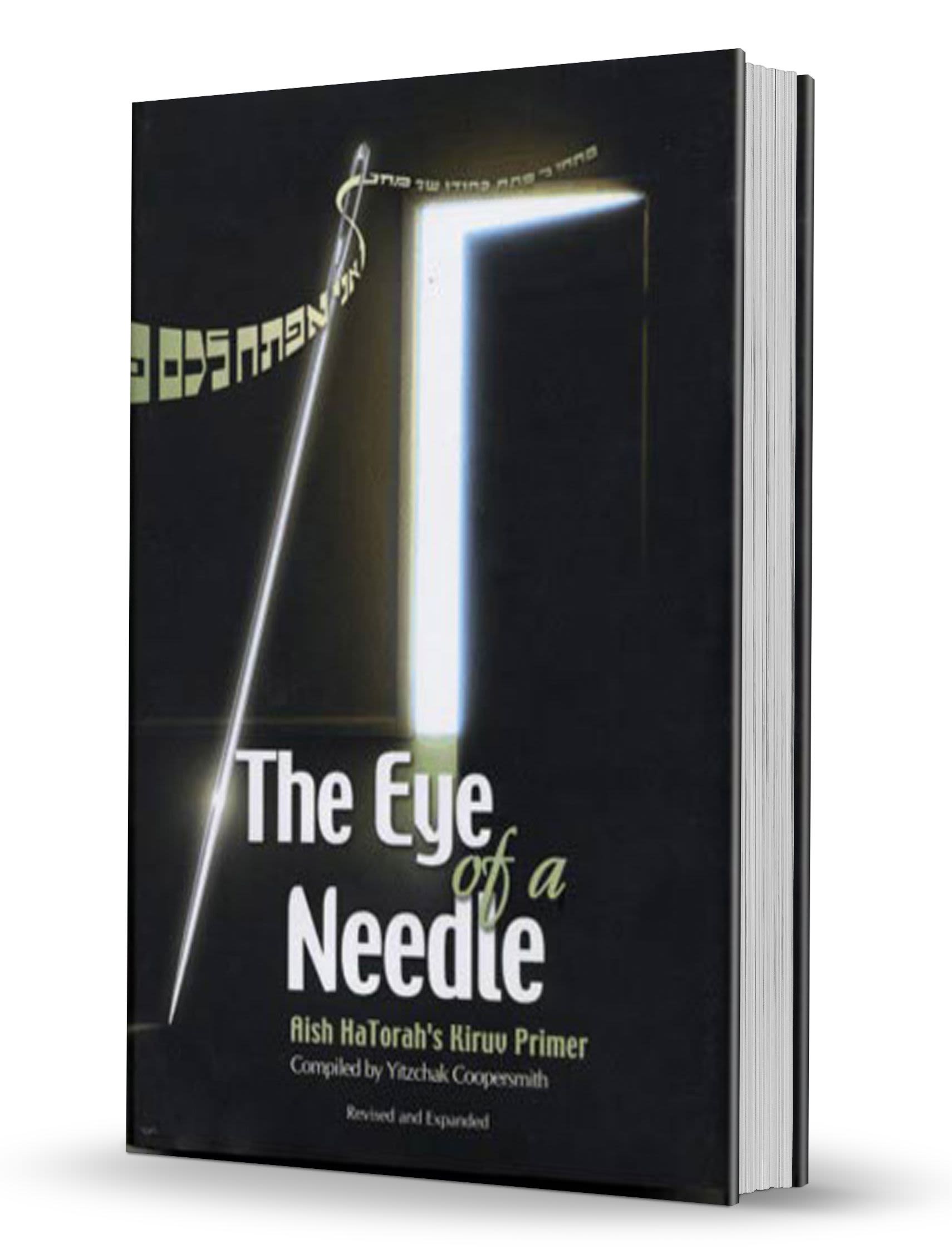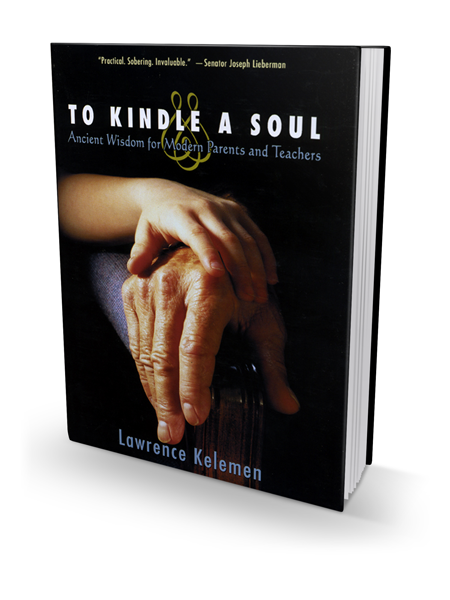
Letting Go
Kids get over something once it’s over; meaning, they let it go emotionally and don’t hang on to it. But not us adults. Will we ever learn to let go?

I’m trying…I’m really, really trying to be a better mother. Not that I’m so bad to begin with, really. I just have one fatal flaw, and I’m trying desperately to get rid of it. If only I could stop getting angry with my kids. Is it even a fair expectation? To be honest, I don’t know. Now, more than ever, I can clearly see what Rav Arush means when he says that our children are just messengers of Hashem. My anger doesn’t seem to be so bad until I find myself getting angry, and then I am reminded that yes, it really is that bad.
I try to blame my Iraqi roots for my anger. But this doesn’t always work, as my brother is just as Iraqi and I am, but he doesn’t get angry! Maybe he got more of the Polish genes from my father. Or maybe the Iraqi gene is only dominant in the women in my family. Maybe I should have been a geneticist. Whatever. I try to blame someone else, but then I am sadly reminded, as I find myself wanting to strangle one of my kids, that I must take full responsibility for my anger. What is it about kids that makes us so vulnerable to their nonsense? Why is it so easy for them to push our buttons? I laugh when my husband tells me about his “stressful” day. Sorry, men. But to me, putting on a fake smile or talking diplomatically about some  difference of opinion with your difficult clients is way easier than trying to resolve a difference of opinion with your kid who thinks he’s your boss. It’s a mystery to me and I haven’t yet found the answer. Really, though, the answer makes no difference. The bottom line is that my kids control me, and they know it.
difference of opinion with your difficult clients is way easier than trying to resolve a difference of opinion with your kid who thinks he’s your boss. It’s a mystery to me and I haven’t yet found the answer. Really, though, the answer makes no difference. The bottom line is that my kids control me, and they know it.
Over the past several weeks, I have been doing my best to implement the wonderful and nearly impossible advice I received from Dr. Zev Ballen. You can read my previous articles for some of his helpful tips: Breaking My Vessel, Reaction and Re-action, and The Hall of Mirrors. However, the process hasn’t been as smooth as I would have liked. My journey is no different than that of most people. I find the information I have been so desperately looking for and needing, and the first few days I was unusually calm and composed when dealing with my kids. At least, that’s what they saw. But after a while, I started sliding backwards. One slightly raised voice turned into a full-blown yell a few days later. Do you know how hard it is not to scream at my kids when they’re throwing cars at each other and hitting each other with broomsticks and rifles? Honestly, I want to take that gun out of my son’s hand and shoot it around the room a la Tony Montana! It is SO difficult not to react when they’re practically mauling each other! What can I do? Many times I do jump into the mosh pit of kicking legs and clawing hands that are trying to find a set of eyes to dig into. Sometimes it’s my hands looking for the eyes!
Here’s the amazing thing about my kids- literally two seconds after their RecklesMania 3000 is over, they forget about the whole thing and go back to playing together. Of course, literally two seconds after that, it’s Round Two of RecklesMania…and on and on, until they’re asleep. It’s completely exhausting, mentally, emotionally, and physically. So what’s so amazing about this? Well, I have been wondering why I am so drained by the end of the day and they’re not. Aside from the fact that they have light years more energy than I do, what’s the difference?
And then it hit me- or was that flash of light from a car to the back of my head? Usually, kids get over something once it’s over. Meaning, they let it go emotionally and don’t hang on to it. I’m talking about minor disagreements, not something traumatic, G-d forbid. When my boys fight, once that fight is over, it’s forgotten about. They’re not going to bring it up again. They’ll just replace it with another fight! But not us adults! We hold on to everything! Unfortunately, women are the worst culprits when it comes to not letting go of past hurt. Why do we feel the need to hold onto our pain? What do we have to gain by doing this? Why are we sabotaging each day by bringing in the suffering we experienced from the previous day?
Every day we’re given a chance to make a fresh start. But what do we do? We get out of bed with that ball and chain attached to our ankles, drag it with us all day long, and most likely do the same stuff we did the day before. I can see from my experience that I am guilty of this, even with the way I feel towards my children. Sometimes, instead of letting go of my anger at the way they didn’t listen to me, or the way they talked back to me, I keep holding on to it, and my anger just builds and builds until I explode like an Iraqi volcano! Don’t we all hold on to negative emotions to one degree or another? Do you know how much lighter we would feel if we could just let all of that negativity go? Just send it away like a bird flying out of our hands?
But what’s so difficult about doing this? Objectively speaking, it seems very easy and practical to do. Just let go of the past! What’s so hard about that? But realistically, it is not a quick and easy endeavor. Letting go of negative feelings can take days, months, even years to accomplish. Sometimes we never let go of the past hurt. But does this benefit us at all? Think about this- when you have a cut, you put a bandage on it to keep the cut protected and as clean as possible. This helps the healing process go unhindered. But when it is time to take the bandage off, isn’t it better to just rip it off in one second? Especially if it’s on a hairy arm or leg! What happens if you take it off slowly? OOUUUUUCCCCHHHH! The pain is prolonged and largely unnecessary. The outcome is still the same. The only difference is the length of time you suffered pulling the bandage off. It doesn’t hurt much less if you take it off slowly, at least if it’s on a hairy arm!
This is what I feel like I’m doing to myself. Instead of ripping the bandage off, I’m pulling it off slowly, putting it back on, taking it back off again… What is the root of our inability to let things go? It is the ego, who convinces us that we do not deserve the painful situation we are experiencing. The ego tells us that we don’t deserve this. I don’t deserve to have such rambunctious children. I don’t deserve a spouse who’s not what I expected. I don’t deserve to have money problems. I don’t deserve a boss who’s borderline abusive. I don’t deserve….etc.Or vice versa: I deserve a fancier house. I deserve a faster car. I deserve a better job. Who gave us the authority to decide what we do and don’t deserve in life? The Yetzer, that’s who. If we had true humility and emuna, we would be thankful for every little thing in life, the good and the bad. With emuna, we would know that everything is exactly as Hashem has decided it should be, and therefore it must be for our best. This “I don’t deserve” business wouldn’t exist in our brains. What happens when we compound the “I don’t deserve/I deserve better” mentality day after day and year after year? We end up seeing everything in life in a negative light. Nothing meets our expectations, and we become exceedingly negative and pessimistic. Many of us might suffer from ongoing sadness and depression, and much of that is because life just didn’t meet their expectations.
When Hashem sees that we’re not trying to understand the situation we’re in and learn from it, He has to turn up the volume. The boss becomes unbearable. The spouse won’t stop nagging. The kids are uncontrollable. It gets worse and worse, until we reach the point where we just can’t take it anymore and want to run away from it all. This is only natural, considering we keep putting the growing load of negative feelings on our backs every day. A little aggravation is an expected daily occurrence, and most of us can deal with it without breaking a sweat. But daily intense suffering can literally break a person! We need to open our spiritual eyes and see that most of our suffering is voluntary and self-imposed. There is no reason we need to drag our negativity from one day to the next, even if we’re going through an ongoing difficult situation.
This is one thing we can learn from our kids. At the end of the day, we need to let everything go. Go for a walk, take deep breaths, and talk to Hashem about your problems. Tell Him what’s hurting you and ask Him to help you understand the message. Remember, a nagging boss or spouse is just a stick in Hashem’s hands. They are not the real issue. This is the secret to personal prayer: once you open up your heart and attempt to find the root of the issue, Hashem will resolve it quicker than you think. You know, kids and boxers have something in common- a second after they’re knocked down, they get right back up. Unless, of course, they’re knocked unconscious…
How does talking to Hashem help us become more resilient? It builds our emuna, which helps us trust that everything is for a reason and for our ultimate benefit. Once we understand that the health crisis is a sign of something deeper, or the rebellious child is a stimulus that we must look at our own character traits, we no longer feel the need to keep loading up on extra baggage day after day. We should learn from the airlines, who only give a one-bag allowance when traveling. Oh, you want more than one suitcase? Fork over $70. Oh, you want to carry that extra 50 pounds of emotional baggage? Fork over your peace of mind. There’s always a tradeoff. If you’re ready to lighten the load on your emotional back, I highly recommend listening to Overcoming Difficulties, Stop Crying, and Your Eternal Benefit.












Tell us what you think!
Thank you for your comment!
It will be published after approval by the Editor.